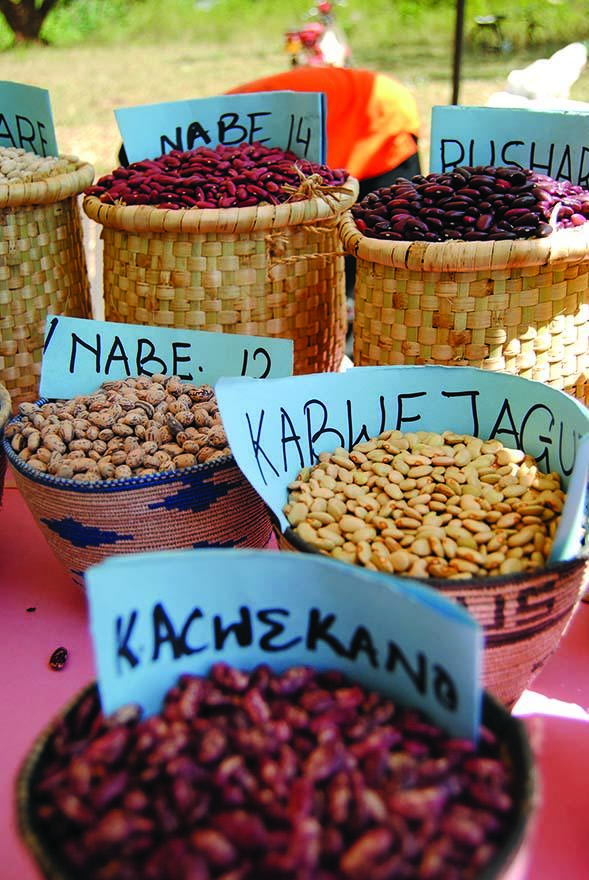Supporting international cooperation in access and benefit sharing of germplasm for climate change adaptation

Climate change is already forcing farmers around the world to find substitutes for currently grown crop varieties that cannot tolerate changing weather conditions. Find out more in this 2013 Annual Report story.
Climate change is already forcing farmers around the world to find substitutes for currently grown crop varieties that cannot tolerate changing weather conditions. One approach is to look for varieties and species that have evolved under climatic conditions that are similar to the ‘new normal’. This calls for cooperation on a global scale. Bioversity International is bringing together its work on locating adapted germplasm for use in vulnerable agroecosystems affected by climate change with policy research focusing on the implementation of international access and benefit-sharing agreements.
Bioversity International’s ‘Genetic Resources Policy Initiative’ (GRPI) is helping to strengthen the capacity of national partners in eight countries – Bhutan, Burkina Faso, Costa Rica, Côte d’Ivoire, Guatemala, Nepal, Rwanda and Uganda – to combine climate data, geographic information, genebank collection coordinates and data on crop suitability to identify potentially adapted genetic resources from collections around the world. These activities provide a pretext for the same countries to explore institutionalizing mechanisms to participate in the multilateral system of access and benefit sharing under the International Treaty on Plant Genetic Resources for Food and Agriculture (ITPGRFA). Through the multilateral system, the 130 member states of the ITPGRFA have pledged to pool and share the genetic diversity of a range of crops and forages for the purposes of conservation, plant breeding and training. So far, few countries have put mechanisms in place to use the multilateral system, so GRPI’s support in this regard is novel and welcome. During its fifth session in September 2013, the Governing Body of the ITPGRFA passed a resolution where it expressed appreciation of Bioversity International’s work in this regard.
Two national-level policy outcomes of GRPI work in 2013 were particularly notable: (1) Rwanda’s confirmation and notification to all other treaty parties about the germplasm it is making available through the multilateral system; and (2) Nepalese partners submitting proposals to the ministries of agriculture and environment to amend the National Agrobiodiversity Policy and the National Biodiversity Strategy and Action Plan to create legal space for the multilateral system. Teams in the other six countries are also developing draft policies and administrative guidelines so they can participate fully in the multilateral system. At the same time, they are learning how to use information systems and climate and crop modelling tools to identify adapted germplasm that they can obtain through the multilateral system.
This story was featured in our 2013 Annual Report.
Read the entire 2013 Annual Report here.
This work contributes to the CGIAR Research Program on Climate Change, Agriculture and Food Security and the CGIAR Research Program on Policies, Institutions and Markets.
